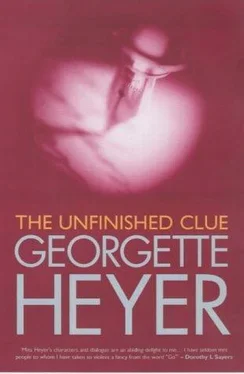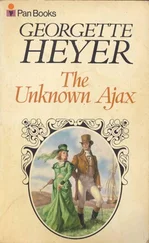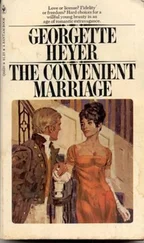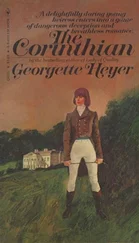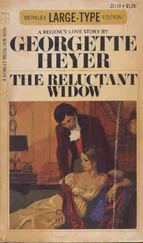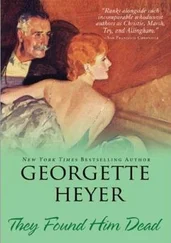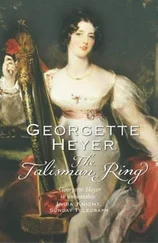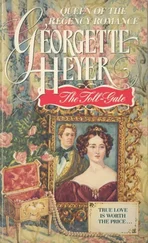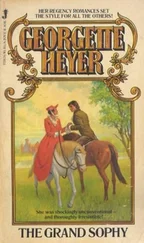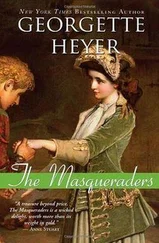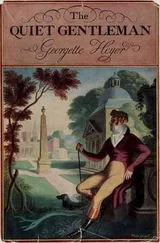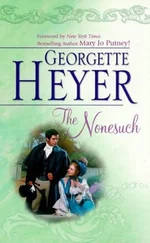The Sergeant sighed, and shook his head. "In my opinion," he said, "it's a bad business. A very bad business, and I don't mind admitting to you, sir, that I don't half like it."
"No, I don't like it myself," replied Harding. He turned, as the parlourmaid opened the door. "Mrs. Chudleigh?"
The parlourmaid, who, in spite of his quite innocuous behaviour on the occasion of his first visit, seemed still to regard him with trepidation, stood back to let him enter the house, and said in a gasp that she would tell the mistress he wished to see her.
Inspector Harding, however, had no intention of being left in the hall again, and followed the maid to the drawing-room at the back of the house.
She opened the door. "It's the police, m'm!" she announced breathlessly.
Mrs. Chudleigh, who was seated at the writing-table in the window, looked sharply round. When she saw the Inspector she rose, but she did not come forward to meet him. "That will do, Lilian," she said, dismissing the servant. "Good afternoon, Inspector. Dear me, Sergeant Nethersole as well? May I ask what you want with me now?"
"Mrs. Chudleigh, I am here on a very unpleasant errand," Harding said gently. "I have a warrant for your arrest for the murder of your first husband, General Sir Arthur Billington-Smith. I must warn you that anything you say now may be taken down in writing and used in evidence."
A queer, twisted smile curled her lips. "I have been expecting you," she said. "I was warned. I've written it all out. It's in that drawer. You'll find it."
Her hand was in the pocket of the cardigan she wore; she withdrew it, and raised it quickly to her mouth. "Look out, sir!" cried the Sergeant, plunging forward.
He was too late; as he seized her wrist he saw her face convulsed. She fell forward, and a little bottle dropped to the ground, and rolled a few inches across the flowered carpet.
The Sergeant dropped on his knee beside her, and felt for her heart. He raised his eyes to the Inspector's face. "She's dead, sir."
Harding nodded. "I know." He came forward, and picked up the empty bottle, and sniffed it. "Cyanide of potassium," he said, and looked down at the dead woman. "It's better like this, Sergeant."
The Sergeant, who had been staring at him with something approaching a frown in his eyes, suddenly lowered his gaze. "Maybe you're right, sir," he said. "I hadn't properly thought of it, but I don't know but what I agree with you." He paused, and got up from his knees. "She was too quick for us, sir," he said deliberately. "That's how it was."
This is the full confession of me, Theresa Emmeline Chudleigh. I am perfectly sane, and what I shall write now is the truth, nor am I ashamed of it.
"I killed Arthur Billington-Smith with the dagger that was lying on his desk. I did not set out to do it, but now that it is done I know that I would do it again. I am not sorry. He was a cruel and a wicked tyrant. He ruined my life, and he would have ruined my son's life. What I did I did for Geoffrey's sake. It is the only thing I have ever been able to do for him, and I am proud of it.
"I have been warned that a piece of paper has been found with the start of my name scribbled on it in Arthur's handwriting. That is why I am setting down this confession, for if the police come to arrest me I have made up my mind to take poison.
"When I left Arthur Billington-Smith twenty years ago, I ran away with a man whose name I shall keep back, since he is dead now, and it cannot have any bearing on what I am going to write. He had promised that we should be married as soon as Arthur had divorced me, but there was another woman, and no doubt she was more attractive than I was. I do not think there is anything to be gained by my going into that. Even now, as I write, all that I went through at that time comes back to me and makes me almost glad that I have not much longer to live in this world. My family disowned me, and I am sure I do not blame them, for there was a dreadful scandal. I was very ill, and when I grew better I went right away where no one would know me. I called myself Miss Emily Lamb. Lamb was my maiden name; I thought it was common enough to attract no attention, and so indeed it proved. That enabled me to make enough to live on. It was through my work, when I was secretary to a charitable institution in the East End of London, that I met Hilary. I should like to say that whatever I had suffered was made up to me by him, and though he will say that in the eyes of God we were not married, I hope no one will deny that I have been a good wife to him. On that point my conscience is quite clear.
"I have been married — I say married, for I have never shared Hilary's prejudice against the remarriage of divorced persons — for ten years, the happiest years of my life. I was neither young nor pretty when we first met, for mine was the type of prettiness that fades quickly. I was pretty once, though that is neither here nor there. But he was not the sort of man to want mere beauty in his wife, and when we had known one another for just a year, he asked me to marry him.
"I did marry him. I have no doubt that a great many people will blame me for what I did, but I have never been one to care what others said, and I do not propose to change now. I never told Hilary that I was a divorced woman. To this day he does not know it. There is only one person who knows who I am. She has continued to be my friend throughout, and although she is a worldly, and sometimes, I fear, frivolous woman, I am grateful to her.
"It was chance, and not any design of mine, that brought Hilary to this parish. I would have preferred any other in the whole world, but it was necessary for Hilary's health that he should go into the country, and we could not pick and choose. I had, however, no fear of Arthur recognising me. He had not set eyes on me for sixteen years, and I hope I am not so vain that I do not realise how much I have aged. When I left him I had literally masses of perfectly natural golden hair, and not a line on my face. A severe illness, and worry, turned my hair grey, and the false teeth which I am obliged to wear quite altered the shape of my mouth. I must say, it amused me to find that my successor, the present Lady Billington-Smith, was not at all unlike what I was in my young days.
"I have had to live as Arthur's neighbour for some years now. I do not know how I have been able to do it. I hope that time has improved me; it had not affected him. He was just the same; I was thankful that Hilary's scruples forbade him visiting the Grange more often. I could not have borne it. His second wife is, I fear, a weak, woman. I have never had any sympathy for her, she should have known better than to have married a man old enough to be her father.
"I do not propose to discuss my son. His faults I lay at Arthur's door. No, I am not sorry I killed Arthur. I am, on the contrary, glad.
"I visited the Grange on Monday on purpose to discover what Arthur meant to do about Geoffrey's unfortunate entanglement. When I found that he had disowned the boy, I knew that a clear duty lay before me, and I did not shirk it. It was time that I made myself known to Arthur, for although he had divorced me I am still Geoffrey's mother, and have a right to concern myself with his future.
"I left the terrace at 12.30 on Monday. I would not permit Arthur's wife to accompany me. I knew that Arthur was in the study, and I chose to approach it from the garden so that people should not know I had gone to see him, a circumstance they must have thought peculiar. I wish to say that I had no intention of killing him. No such thought had so much as crossed my mind. I meant only to plead with him on Geoffrey's behalf. Julia Twining had promised to do what she could, but I had no faith in her power of persuasion. I thought if I threw myself on Arthur's generosity, perhaps, after so many years, he would listen to me.
Читать дальше
